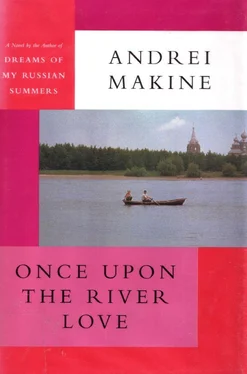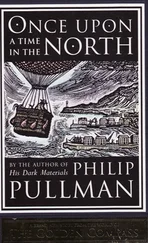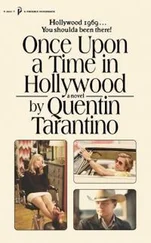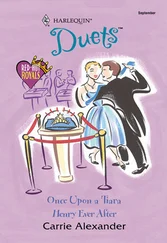"Yes, especially in Venice!" elaborated Utkin, joining in the game with relish.
"Or at least he ought to have got rid of his mistress first," I added, with assumed indignation. "Because, let's face it, having a girl like that on your hands, stark naked and flaunting her fanny, with a husband as furious as a mad dog… for a spy, that's suicidal."
The occupants of the neighboring tables had fallen silent and were turning their heads our way. It was clear that our conversation intrigued them. The three waiters maintained their sullen and scornful expressions. They could not figure out if we were young farmworkers in a fit of delirium or three boy seamen who really had been around the world.
Finally one of them, the one most allergic to fantasies, came over and with a disagreeable grimace muttered: "Okay you kids, pay up quick, and back to school! Everyone's had enough of your idle stories."
We saw several curious smiles spreading over the faces at the neighboring tables. The trio we made was too unusual, even in this restaurant near the docks.
Samurai treated the waiter to a look of mocking indulgence and announced, raising his voice slightly, so as to be heard by everybody: "A little patience. I haven't yet smoked my last cigar!"
And in a leisurely fashion he took out an elegant tube of fine aluminum, from which he removed a real Havana cigar at least eight inches long. With a precise gesture, he cut off a little piece and lit it.
As he blew out the first cloud of aromatic smoke, he said to the petrified waiter: "You have forgotten to bring us an ashtray, young man…"
The effect was sensational. Those at the neighboring tables stubbed out their miserable little cigarettes; the waiters, dumbstruck, vanished into the kitchen. Samurai leaned back in his chair and began to savor his cigar, half closing his eyes, his gaze lost in a far-off dream world. From it Belmondo sent us his warm smile…
That is how we ate Samurai's gold "rhinoceros." He had sold it quickly and therefore cheaply. With the rubles left to him he paid for three third-class seats on a night train. Unreserved seats in a jam-packed coach, piled high with the ill-assorted luggage of travelers who demanded little with regard to comfort, whose humdrum faces and thick clothes were ht by a dim bulb in the ceiling. And that evening's news was broadcast by the radio built into the wall: "… in celebration of the seventieth anniversary… the Collective has decided to increase by eleven percent…"
The locomotive bellowed, and the tonality of its farewell cry gave us a final taste of the Pacific air's misty chill…
The passengers, for their part, uttered a sigh of relief- at last! – and began to take out of their bags provisions wrapped in paper spotted with patches of oil. The carriage was filled with the smell of roast chicken, smoked sausage, melted cheese. Unable to tolerate these alimentary emanations, we climbed all the way up onto the luggage racks. The buzz of all the conversations, muffled by the drumming of the wheels, floated right up to us. It was a nonstop flow, a mixture of everything: alarming anecdotes of legendary delays to this train caused by cataclysmic snowstorms; fears lest their frozen fish might start to melt and drip on their neighbors' coats; hunters' tales; tirades against the Japanese, "who are stripping our taiga bare"; and, of course, inevitable memories of the war, interspersed with the refrain "Mind you, things were better organized under Stalin."
Amid this cacophony, dulled by the thunder from the track, there filtered through clearly the voice of a man of small stature, ageless, a kind of Russified Chinese, whose round face had narrow fissures in it, dark and glistening, out of which his gaze shone. He was sitting in his corner, unremittingly telling stories linked to his life on the banks of the mighty river. His narratives led into one another and formed an epic saga addressed to heaven knows whom. At all events, it was he who proved to be the most resistant to the fatigue of the night. All the other passengers had long since fallen silent, wedged together on the hard benches, trying to find the best position between their neighbors' feet and elbows. But the tale told by the old Chinese was still not at an end. The monotonous and somehow childlike voice of this ageless man filled the darkness. "… It was already June, and suddenly the snow began to fall. I had potatoes: they froze. I had carrots: they froze. I had three apple trees: they froze. The river swelled even more. No fish. Then Nikolai said to me: 'In the city, at the game inspectorate, they're giving fifty rubles for every wolf you kill.' And I said to him: 'But first you have to kill it.' And he said: 'Well, those wolves, we're going to plant them.' And I said: 'How d'you mean, plant them?' 'Just like potatoes,' he says to me. And that's what he did. We went into the taiga and found their den. The mother wolf wasn't there. And in the hole, six little cubs. But the inspectorate doesn't give anything for little ones. So Nikolai fixed wire around their paws. And we left them. He said to me: 'That she-wolf will never abandon her young. And the wolves will grow. But they won't be able to walk.' In the autumn we went back. And Nikolai killed them all, with a club, so as not to waste cartridges. I helped him carry them to the cart and then bring them into town. At the inspectorate they gave him three hundred rubles. Nikolai bought eight bottles of vodka, to celebrate. And he drank too much; the doctor said he'd burned his stomach. And then we buried him, and with what was left of the money his wife ordered a good black granite headstone. But the workmen carrying it got drunk and…"
I could not bear to hear that voice anymore. I blocked my ears. But the story seemed to seep into my head without words – I could only too easily guess what came next, having heard so much of it. And they got drunk, and the stone fell and broke…
Unable to stand it any longer, I toppled down from my narrow plank and began hurrying along the corridor, blocked with luggage and the feet of sleeping passengers. I passed through two coaches similar to our own, filled with the same food smells and the same dull murmur of people crammed in and shaken about, as the passengers in the rear coaches always are. Then there were several second-class coaches, in which the passengers were asleep on berths and obstructing the narrow corridor with their feet, either bare or clad in thick woolen socks. One had to be nimble to avoid them… Finally I came to an empty corridor. The doors to all the compartments were closed. The passengers in this coach were already asleep…
I made my way along three or four more corridors, clean and deserted, redolent of toilet soap. I sensed that the goal of my journey was nigh… that mysterious sleeping-car dream car: the one in which a few rare Westerners traveled, venturing into the wild spaces of our fatherland.
I pushed open the door, I sniffed the air, and at that moment I saw her!
She was standing at the window in that narrow space between the long corridor and the platform by the exit doors. She was there, her gaze lost in the darkness of the Siberian night. She was smoking. A slender cigarette, very long and brown in color, which I instantly recognized as the feminine equivalent of Samurai's Havana cigar. A fur cape, light and gleaming, was thrown around her shoulders. Her face, seen in profile by the hazy light of this luxury coach, had nothing dazzling about it. Her delicate features were tinged with the serene pallor of return journeys…
I stopped short a few yards from her, as if I had come up against the invisible aura that her whole person radiated. I feasted my eyes on her… that hand holding the cigarette and slightly turning back a lapel of her cape; that foot clad in a short ankle boot, resting on a little ledge against the wall. Her knee beneath the dark transparency of her stocking fascinated me. That delicate knee allowed one to picture a leg that had none of the tanned roundness of the antelopes in our films. No, a slender and vigorous thigh with a fine, golden, velvety skin.
Читать дальше












